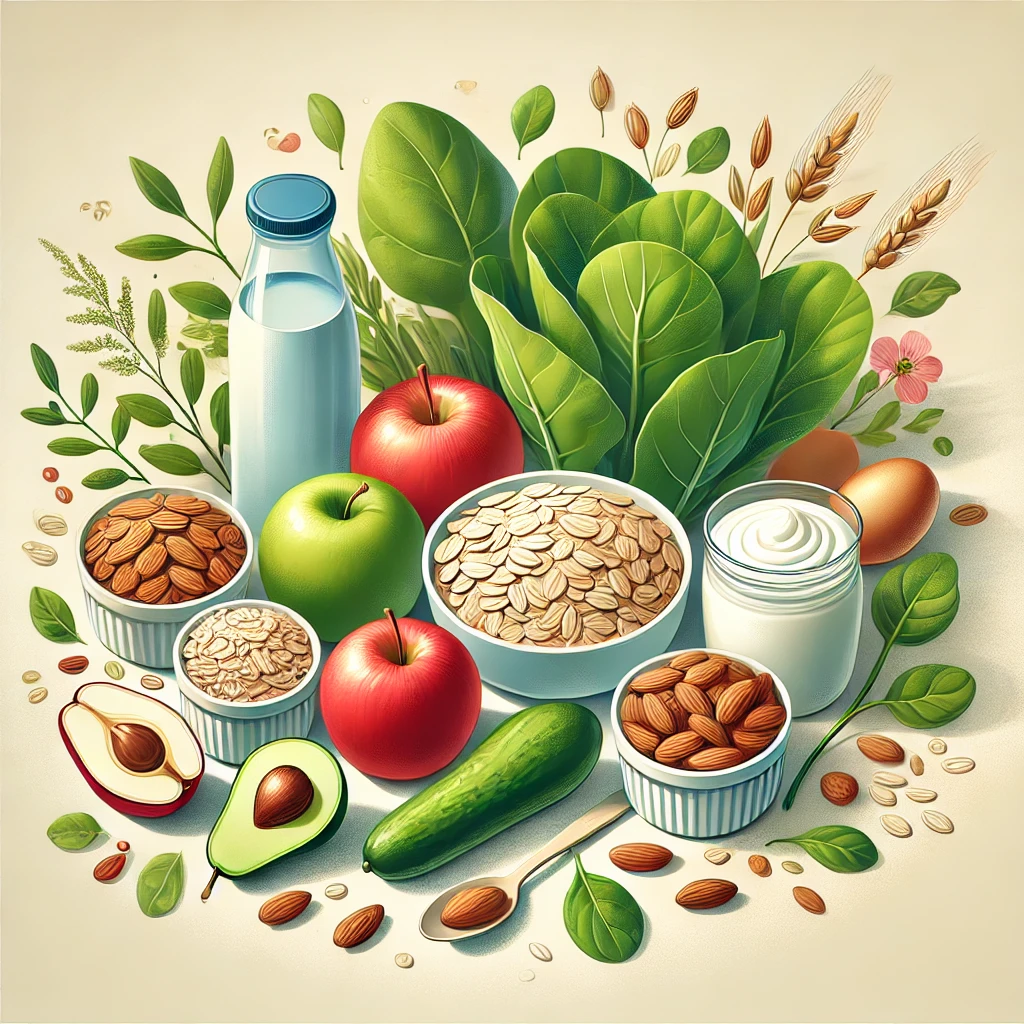Constipation can be uncomfortable and frustrating, affecting both physical and mental well-being. A fiber-rich diet, along with proper hydration, plays a significant role in promoting regular bowel movements and improving digestive health. Here are some of the best foods to help relieve constipation, along with tips for maintaining a balanced digestive system.
1. High-Fiber Fruits
Fruits are excellent sources of both soluble and insoluble fiber, which help bulk up stools and keep things moving.
- Apples: High in pectin, a soluble fiber, apples help soften stool and promote smooth bowel movements. Eating them with the skin provides additional fiber.
- Pears: Pears contain sorbitol, a natural laxative that can ease constipation.
- Berries: Blueberries, strawberries, and raspberries are packed with fiber while being low in calories, making them an easy addition to your diet.
Tip: Aim to eat fresh fruit daily to benefit from their fiber and water content.
2. Leafy Greens
Leafy greens like spinach, kale, and Swiss chard are high in fiber and magnesium, a mineral that supports muscle contractions in the digestive tract.
- Spinach: Contains fiber and water, both of which can relieve constipation.
- Kale: High in antioxidants and fiber, kale adds bulk to stool and promotes gut health.
How to Enjoy: Add leafy greens to smoothies, salads, or sautés to increase your fiber intake effortlessly.
3. Whole Grains
Whole grains are rich in insoluble fiber, which helps add bulk to the stool and speeds up transit time in the digestive tract.
- Oats: Oats contain both soluble and insoluble fiber, making them an excellent choice for maintaining regularity.
- Brown Rice: High in fiber and nutrients, brown rice supports digestion while providing sustained energy.
Serving Suggestions: Replace refined grains with whole grains in meals. Opt for whole-grain bread, oats, and brown rice for added fiber.
4. Beans and Legumes
Beans, lentils, and chickpeas are fiber powerhouses. They contain a mix of soluble and insoluble fiber, which aids digestion and helps with regular bowel movements.
- Lentils: Just one cup provides around 15 grams of fiber.
- Black Beans: A nutrient-dense legume high in fiber and protein.
How to Enjoy: Add legumes to soups, salads, or make them a base for hearty dishes to boost fiber intake.
5. Nuts and Seeds
Nuts and seeds are not only rich in fiber but also contain healthy fats that can aid in digestion and reduce constipation.
- Chia Seeds: When mixed with water, chia seeds form a gel-like consistency, helping to soften stool.
- Flaxseeds: Ground flaxseeds are easier to digest and are high in both fiber and omega-3 fatty acids, which support gut health.
Tip: Sprinkle chia or flaxseeds on yogurt, oatmeal, or smoothies for an easy fiber boost.
6. Yogurt and Probiotic-Rich Foods
Probiotic foods like yogurt contain live bacteria that support gut health and promote regular bowel movements.
- Yogurt: Look for yogurt with “live and active cultures,” which can help balance gut bacteria.
- Kefir: This fermented drink is packed with probiotics and helps improve digestion.
Serving Suggestion: Add a serving of yogurt or kefir to your daily routine to promote healthy gut bacteria and improve regularity.
7. Water-Rich Vegetables
Staying hydrated is essential for digestive health, and water-rich vegetables provide fiber along with hydration.
- Cucumbers: Low in calories and high in water, cucumbers help soften stool.
- Zucchini: A hydrating vegetable that is easy to digest and full of fiber.
How to Enjoy: Add these vegetables to salads, stir-fries, or snack on them raw for a refreshing fiber boost.
8. Prunes
Prunes are famous for their natural laxative effect, thanks to their fiber and sorbitol content, which aids in drawing water into the intestines and softening stool.
- Prunes: Just a few prunes a day can provide relief for constipation.
Tip: Enjoy prunes as a snack or add them to salads or yogurt for added sweetness and fiber.
Additional Tips for Preventing Constipation
- Stay Hydrated: Drinking water helps fiber work efficiently in the digestive system, softening stool and easing transit.
- Exercise Regularly: Physical activity stimulates the intestines and promotes regular bowel movements.
- Establish a Routine: Try to set aside time each day for bathroom breaks to encourage regularity.
Final Thoughts
Adding fiber-rich foods to your diet and staying hydrated are essential for maintaining digestive health and preventing constipation. Incorporate these foods into your daily meals to support a healthy digestive system naturally, and remember that consistency is key for long-term benefits.
Share this content:



